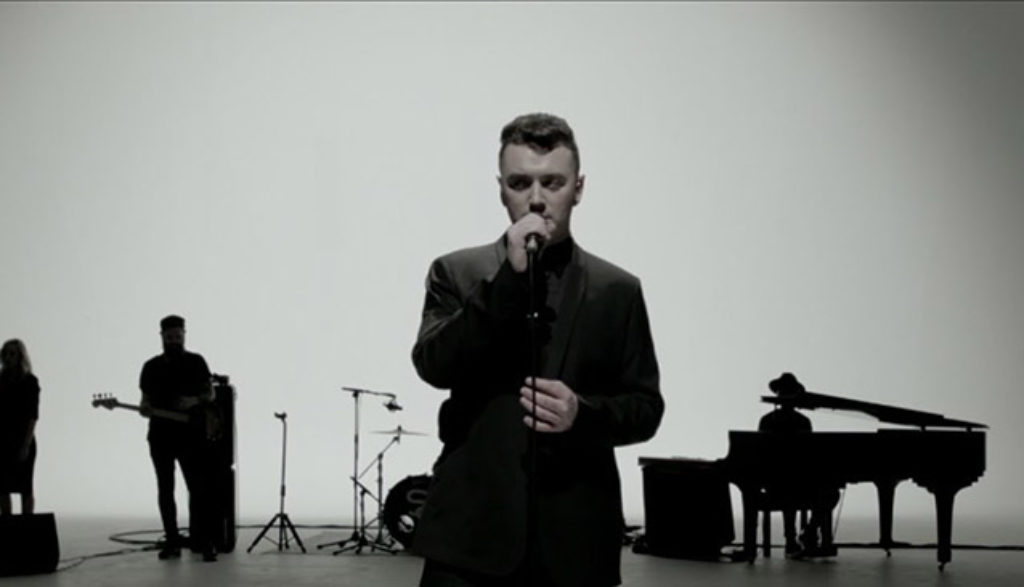
Washington Post music reviewer Allison Stewart recently characterized 22-year-old Briton Sam Smith as an “R&B supernova.” It’s an apt description for someone whose career is now exploding on the American side of the big pond. First-week sales of Smith’s debut concept album about unrequited love, In the Lonely Hour, landed just north of 100,000 units—more than five times what Jennifer Lopez’s latest effort sold in its concurrent debut week.
Earnest, melancholy, romantic tragedy is in these days. And Smith’s earnest, melancholy, fragile falsetto delivers in that category—but in the service of glamorizing some dangerously irresponsible choices.
In an interview with Fader at the end of May, Smith talked about being gay as well as revealing the inspiration for his album. “I’ve never been in a relationship before. I’ve only been in unrequited relationships where people haven’t loved me back. I guess I’m a little bit attracted to that in a bad way. In the Lonely Hour is about a guy that I fell in love with last year, and he didn’t love me back. I think I’m over it now, but I was in a very dark place. I kept feeling lonely in the fact that I hadn’t felt love before. I’ve felt the bad things. And what’s a more powerful emotion: pain or happiness?”
That question serves as an effective setup for “Stay With Me,” which has cracked the U.S. Top 5. It’s long on pain and short on happiness as Smith begs his one-night stand partner to stick around, even though he admits that the hookup wasn’t about anything more than desperate sex.
“Guess it’s true,” he begins confessionally, “I’m not good at a one-night stand/But I still need love, ’cause I’m just a man/These nights never seem to go to plan/I don’t want you to leave, will you hold my hand?” That plaintive request is quickly paired with the acknowledgement that the connection Smith longs for in the moment isn’t likely to last (“Oh, won’t you please stay with me?/’Cause you’re all I need/This ain’t love, it’s clear to see/But darling, stay with me”).
As if aware that he might be coming off as too needy, Smith then ponders, “Why am I so emotional?/No, it’s not a good look, gain some self-control/And deep down I know this never works/But can you lay with me so it doesn’t hurt?” Nope. That doesn’t work at all. He still sounds super needy, so frantic to evade the loneliness that stalks him that he’ll cling to any approximation of love and intimacy, even if he knows it’s not the real thing.
And then we hear his sad request three more times: “Oh, won’t you stay with me?/’Cause you’re all I need/This ain’t love, it’s clear to see/But darling, stay with me.”
I suspect the appeal of a song like this one is in Smith’s unflinching, vulnerable and brutally honest depiction of his desperation. His cry for connection likely resonates with anyone who’s ever feared being left all alone.
Yet his plea, while honest and human, is also a reckless, dangerous and immoral one. He’s aware that a casual physical connection with another man isn’t going to satisfy him, yet he chooses to give in to the lie anyway because it’s the “best” he can hope for in the moment. The problem with the example he sets here, then, is in the way he romanticizes and rationalizes a desperation-driven choice that will ultimately prove degrading and destructive.
He knows all that, as I’ve said. But whether or not impressionable listeners—who might internalize and imitate Smith’s emotionally skewed logic—really understand the damaging consequences of a similar choice remains to be seen.
Note that the song’s video depicts Smith getting up from a rumpled bed and quietly dressing after the song’s aforementioned one-night stand. Then he walks, morosely, around London.


After serving as an associate editor at NavPress’ Discipleship Journal and consulting editor for Current Thoughts and Trends, Adam now oversees the editing and publishing of Plugged In’s reviews as the site’s director. He and his wife, Jennifer, have three children. In their free time, the Holzes enjoy playing games, a variety of musical instruments, swimming and … watching movies.